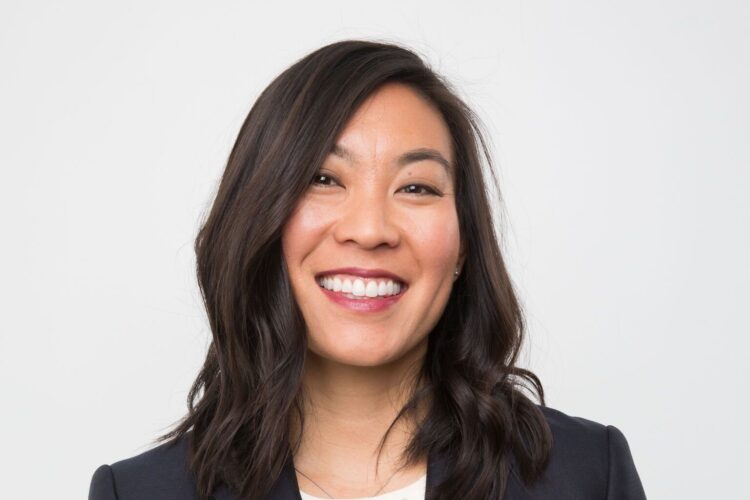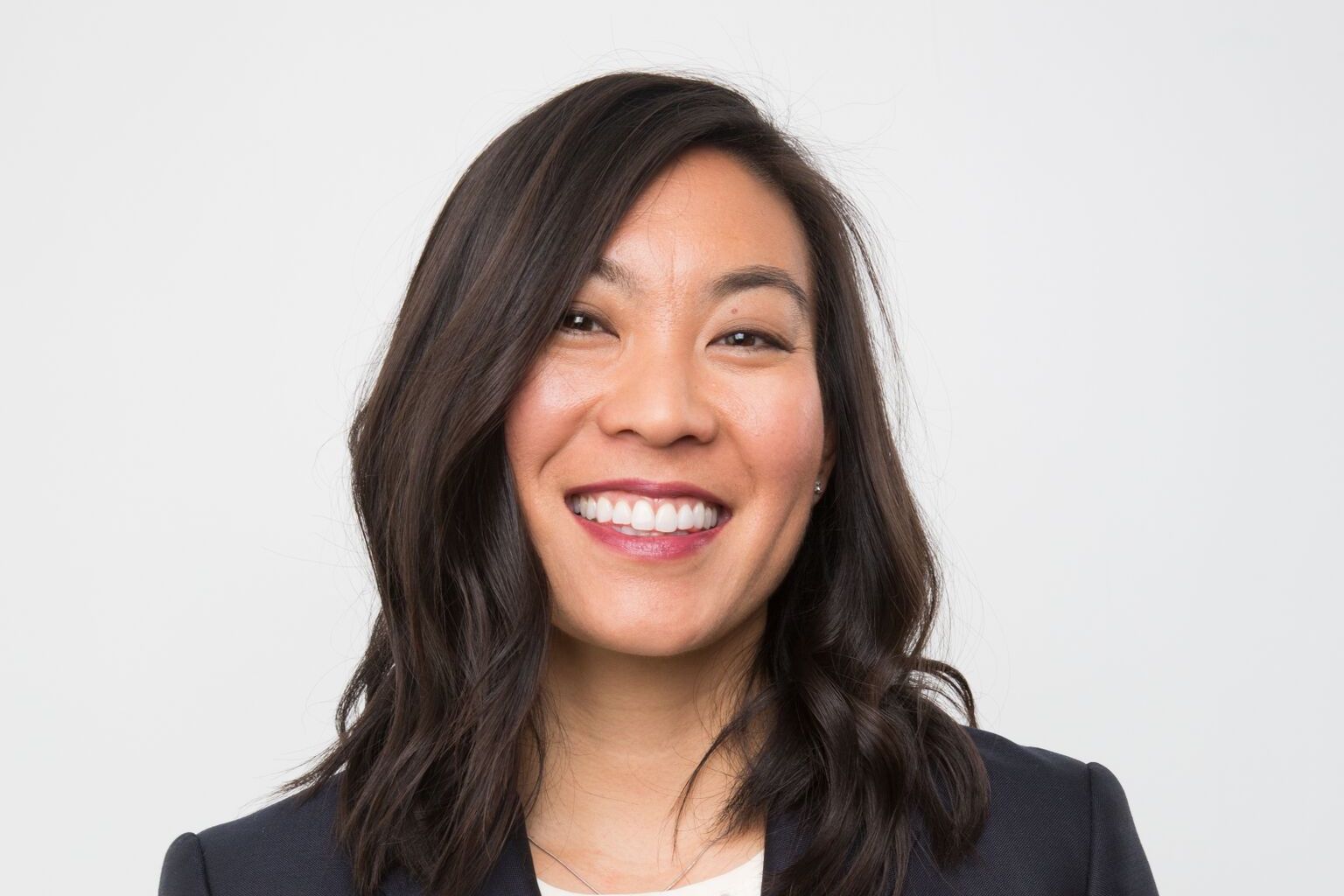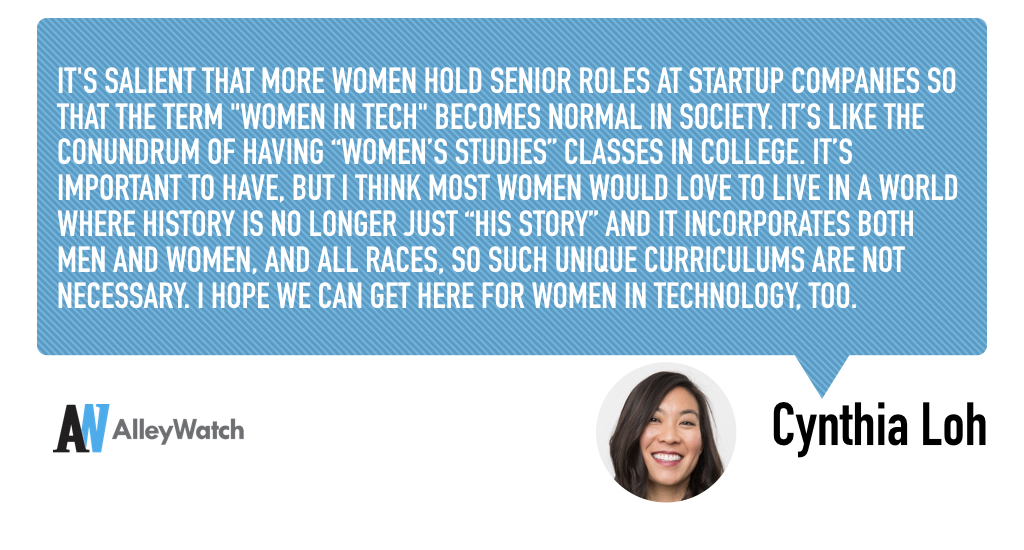Are you a woman in NYC Tech and interested in participating in this series? Make sure to read the whole article…
Today we speak with Cynthia Loh, a General Manager at Betterment for Business. After working for more than a decade at in big finance in NYC, she jumped right into the startup world. Seeking growth opportunities beyond corporate, she networked herself into becoming the first executive hire in business development at ZocDoc. Looking to get back into finance, Cynthia secured a role as the General Manager in Betterment’s retirement arm, Betterment for Business, a 401(k) robo-advisor, during its initial launch. Cynthia is highly active in NYC and was honored as one of the “50 Leaders Who are Transforming Benefits” by Employee Benefit Adviser and one of the “30 People to Watch” by Employee Benefits News. Today, she shares some insight with us on her career path and where women in tech stand in the ecosystem.
Cynthia Loh, Betterment
What’s your background and how did you develop your career as a female entrepreneur in the NYC tech ecosystem?
I seemed to be a business woman early in life. So early in that I started a jewelry “company” with my best friend around the age of ten, and ran a babysitting business by my teenage years. But I grew up, and after graduating from UC Berkeley in 2002, I jumped right into the investment banking world at Merrill Lynch, and then went back to get my MBA at Stanford. I was on the finance path forward, next as a VP at PIMCO and later running sales and client service at a hedge fund in NYC. These roles were monumental to my career, however I realized about a decade into this path that I cared too much about the prestige of the name on the door, the title it came with, and how quickly I could get to the next level. I also discerned that these low-risk, high-profile firms did not have the growth opportunities I was yearning…and I wanted to try something new where I would be challenged and expand my skill set.
So, I took a leap of faith and entered the tech startup world here in NYC. I networked my way to the CEO of ZocDoc and joined the company in early 2013 as their first-ever executive hire on new business development. This led me to develop a B2B strategy from their existing B2C platform, and create an entirely new line of business for the company; I did everything from writing the business plan, fostering distribution partnerships that accelerated growth, driving the product roadmap, and hiring, training and managing a national sales team and client servicing team. It’s safe to say I was bit by the startup bug.
I was then presented with the opportunity to build and lead a brand-new business unit of leading robo-advisor Betterment. The CEO of the revered startup was looking to disrupt the antiquated 401(k) market with a new arm and service offering, Betterment for Business. I joined in mid-2015 as the General Manager. At the time, it was me and a product manager – we had nothing – no product, no strategy, and no knowledge of the 401(k) industry. We pitched a business plan to the Board in August 2015, announced the intent of the business line to the press in September 2015, and went live with 50 clients in January 2016. 18 months later, we have more than 350 clients, two major partnership deals with Uber and ADP, an Advisory Board with some of the top names in the industry (including the heads of retirement at IBM and Google), and a team of more than 35 employees dedicated to this business, almost all of which I personally hired. Betterment for Business received the 2016 Wealth Management Award in the category of 401(k) Retirement Plan Support Services. Also, I was named one of the “50 leaders who are transforming benefits” by Employee Benefit Adviser, and one of the “30 People to Watch” by Employee Benefits News.
What are the advantages of being a woman in tech?
As a woman, we have different opportunities to exceed expectations based on the boys’ club, and bring fresh perspectives to technology. I’ve had opportunities to build out our Advisory Board, with female leaders who are experts in similar industries, recruit top female talent, and have access to terrific mentors.
What can be done to further promote female entrepreneurs and women in tech in New York?
So much! For most products and services, females are a significant portion of the company’s customer base – supporting women can only benefit a company’s bottom line. If you are in a Board, Management or investor seat, ensure that the company has female colleagues in Board and Management seats around the table. For women at every level, I would encourage you find a women’s group that you can get involved in so that you have a support network, and can inspire and empower each other.
What is diversity to you and do you see it evolving in tech?
Diversity is about building a team of individuals that are not just strong individual contributors, but also have complementary skill sets and viewpoints. The former head of admissions at Stanford Business school, Derrick Bolton, which has the lowest admissions rate in the country at 6%, used to talk about his process in selecting the incoming class of 300 or so MBAs. He said it wasn’t about picking the star performers from the top companies to fill the class, but the blend of individuals – we had the stereotypical students from finance and consultants, but also had very broad diversity: the woman who started a microfinance company in Africa, the gentleman who started a company selling chess games, and another gentlemen who drove an oil tanker in the Middle East. The heart of the education was in the diversity of thought.
When I’m hiring, and I advise this to any other founders out there, I think critically about the skills and experiences that could make the team more successful, and hire those that will complement the gaps.
Why do you think it’s important that women retain, grow, and develop into senior roles within their organizations?
It’s salient that more women hold senior roles at startup companies so that the term “women in tech” becomes normal in society. It’s like the conundrum of having “women’s studies” classes in college. It’s important to have, but I think most women would love to live in a world where history is no longer just “his story” and it incorporates both men and women, and all races, so such unique curriculums are not necessary. I hope we can get here for women in technology, too.
How do you see the future of teams and interactions in a diverse environment and what implications will this have?
NYC is an amazingly diverse place to run a company from a socio-economic, gender and ethnic point of view – these differences can make a startup that much stronger. Companies that truly support and promote diversity will benefit from creative solutions to their mission, which will shine through in a product and in a team.
How can women rise in the ecosystem and what are the unseen barriers?
While you see an increase in women in middle management, I believe unseen barriers typically arise at the executive level. It’s so important to find a mentor, male or female, someone you want to be, that understands the nuances of being a female leader, and that you have a connection with, so that you have someone to help you navigate through the next level of your career.
Please tell us about a few organizations that you are involved with or respect that are promoting women in tech.
I support several women’s organizations in finance, including the Financial Women’s Association, Women in ETFs and Women in Pensions. As it relates to promoting women in my own career, I’ve relied on female mentors from previous employers, as well as seeking out new mentors. One of my current mentors, Laraine McKinnon, who serves on our Advisory Board, also sits on the Board of The Club, a fantastic women’s leadership advocacy program in the Bay Area.
What can men do to participate in this discussion?
I would just ask men to take a hard look at how they focus their attention when it relates to women in the workplace, both as it relates to the big picture (e.g. is there female representation at every level and business segment? Are there gender gaps in compensation? Are the female leaders highlighted in public speaking and press opportunities?) and the tactical everyday (e.g. do you ask female employees to do more of the stereotypically female tasks such as event planning, picking up coffee or lunch? Do women get the same amount of airtime and attention when speaking as their male counterparts?).
The team at AlleyWatch believes it’s important to have an inclusive discussion around the challenges facing women in tech along with highlighting the work of the female entrepreneurs that have made NYC one of the best places for women in tech according to some recent studies. That’s why we are running this series that showcases women in tech in New York.
If you are a female founder in NYC working in tech and interested in participating in the series please visit this link or click on the image above.
Please feel free to pass this on to any women in NYC that you feel should be considered for the series. Thank you.






